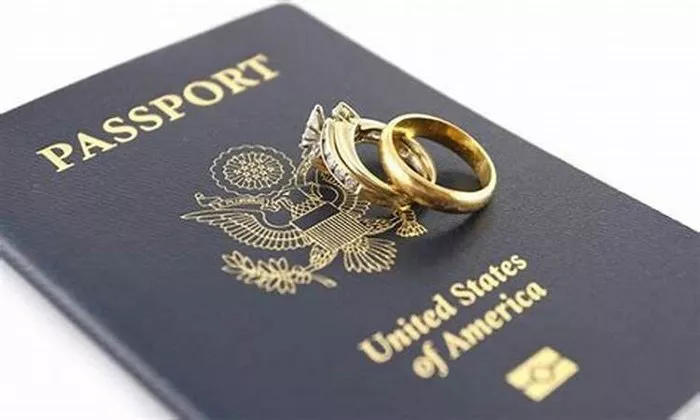The K1 visa, also known as the Fiancé(e) visa, is a vital pathway for couples seeking to reunite in the United States. However, the processing times for K1 visas can often be lengthy and unpredictable, leading to frustration and anxiety for those awaiting approval. In this article, we’ll delve into the reasons behind these delays, offer tips for navigating the process smoothly, and explore options for expediting the visa process when necessary.
Typical Processing Timeframe
The journey of obtaining a K1 visa involves several stages, each with its own associated processing time. Typically, the process begins with the filing of the Form I-129F, Petition for Alien Fiancé(e), with U.S. Citizenship and Immigration Services (USCIS). Once USCIS approves the petition, it is forwarded to the National Visa Center (NVC) for further processing. The NVC then transfers the case to the U.S. embassy or consulate in the foreign fiancé(e)’s home country for visa issuance.
The duration of each stage can vary depending on factors such as the volume of applications, the efficiency of processing agencies, and external circumstances. On average, the entire process from petition filing to visa issuance can take anywhere from 6 months to over a year.
Reasons for K1 Visa Delays
Several factors can contribute to delays in the K1 visa process, including:
1. Increased Demand and Application Volume: As immigration policies evolve and global migration trends shift, the demand for K1 visas may fluctuate, leading to surges in application volume that overwhelm processing resources.
2. Administrative Backlogs at USCIS: USCIS, the agency responsible for adjudicating visa petitions, may experience backlogs due to staffing shortages, procedural changes, or internal inefficiencies, slowing down the processing of K1 visa petitions.
3. Security Checks and Background Investigations: Stringent security protocols require thorough background checks on visa applicants, which can prolong processing times, especially if the applicant’s background raises any red flags or triggers additional scrutiny.
4. Incomplete Applications or Missing Documentation: Any deficiencies or errors in the visa application package can result in delays as USCIS or the consulate requests additional information or documentation to complete the review process.
5. Requests for Evidence (RFEs): USCIS may issue Requests for Evidence (RFEs) if they require further clarification or documentation to support the visa petition. Failure to respond promptly and adequately to an RFE can significantly prolong processing times.
6. Embassy or Consulate Workloads: The workload and capacity of U.S. embassies and consulates abroad can impact visa processing times, especially in regions with high demand or limited staffing resources.
7. Current Events or Government Policies: External factors such as changes in immigration laws, diplomatic tensions, or global events (e.g., pandemics) can disrupt visa processing operations and lead to unforeseen delays.
Checking Your K1 Visa Status
Individuals can track the status of their K1 visa application online through the USCIS Case Status Online tool or the Department of State’s Consular Electronic Application Center (CEAC) website. Applicants will need their unique receipt number or case number to access their case status information.
Additionally, the U.S. embassy or consulate where the visa application is being processed may provide instructions on how to inquire about the application status via email or phone.
Tips to Avoid Delays
To enhance the likelihood of a smooth and timely K1 visa process, applicants should consider the following tips:
1. Ensure a Complete and Accurate Application: Thoroughly review the visa application forms and instructions to ensure all required information is provided accurately. Double-check for any errors or omissions that could trigger delays.
2. Respond Promptly to RFEs: If USCIS issues an RFE, respond promptly and comprehensively with the requested information or documentation. Failure to do so within the specified timeframe can result in the denial or further delay of the visa petition.
3. Stay Informed About Current Processing Times: Regularly monitor USCIS and Department of State websites for updates on processing times and visa bulletin information. Understanding the current processing landscape can help applicants manage their expectations and plan accordingly.
4. Seek Legal Advice if Needed: Consulting with an experienced immigration attorney can provide valuable guidance and support throughout the visa application process. An attorney can help navigate complex legal requirements, address concerns, and advocate on behalf of the applicant if issues arise.
Options for Expediting the Process
In certain circumstances, applicants may explore options to expedite the K1 visa process:
1. Expedited Processing Requests: USCIS may consider expedited processing requests for K1 visa petitions in certain urgent situations, such as medical emergencies, humanitarian concerns, or impending travel plans. Applicants must provide compelling evidence to support their request for expedited processing.
2. Contacting Congressional Representatives: Seeking assistance from congressional representatives, such as senators or congressional aides, may help expedite the visa process by advocating on behalf of the applicant with USCIS or the Department of State.
3. Working with an Immigration Attorney: An immigration attorney can assess the applicant’s eligibility for expedited processing and assist with preparing a persuasive request for expedited treatment. Legal representation can significantly improve the chances of a successful outcome.
Conclusion
In conclusion, while delays in the K1 visa process can be frustrating, understanding the underlying reasons and taking proactive steps can help mitigate potential obstacles and expedite the journey to reuniting with loved ones in the United States. By staying informed, preparing diligently, and seeking appropriate assistance when needed, applicants can navigate the visa process with confidence and resilience.


